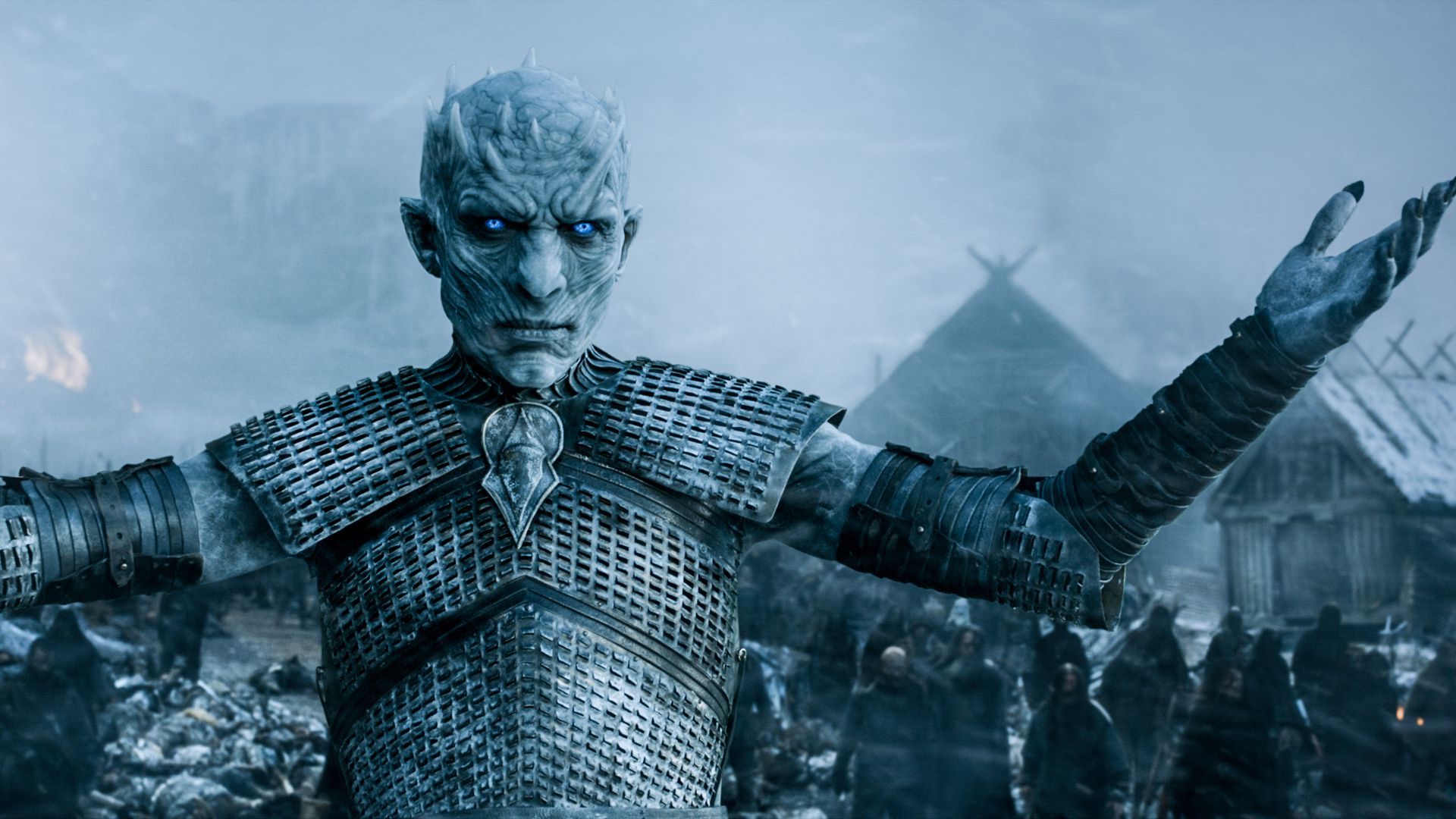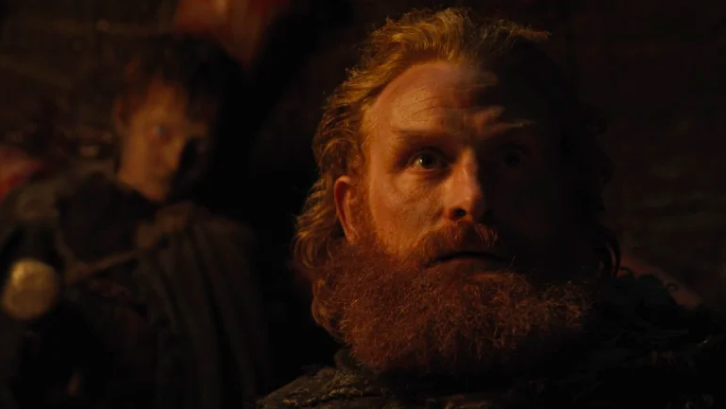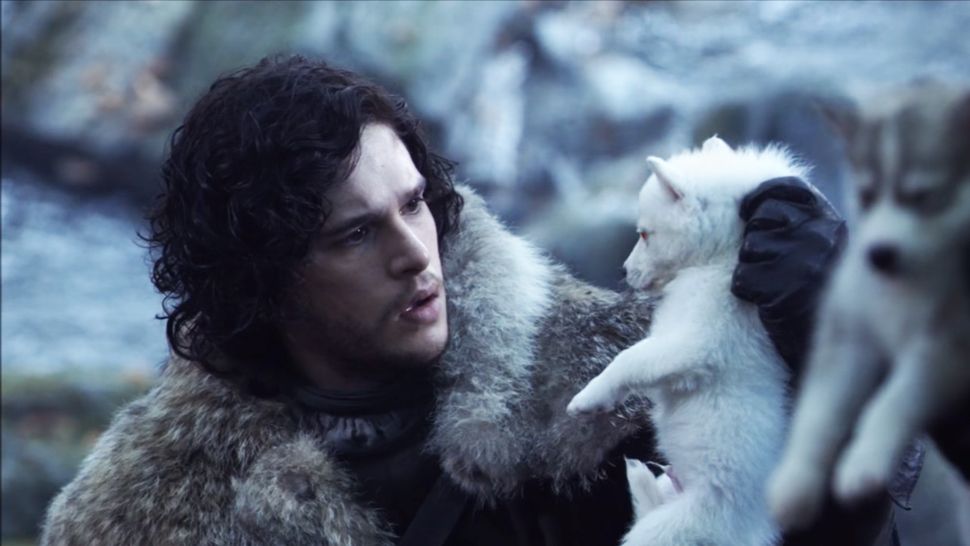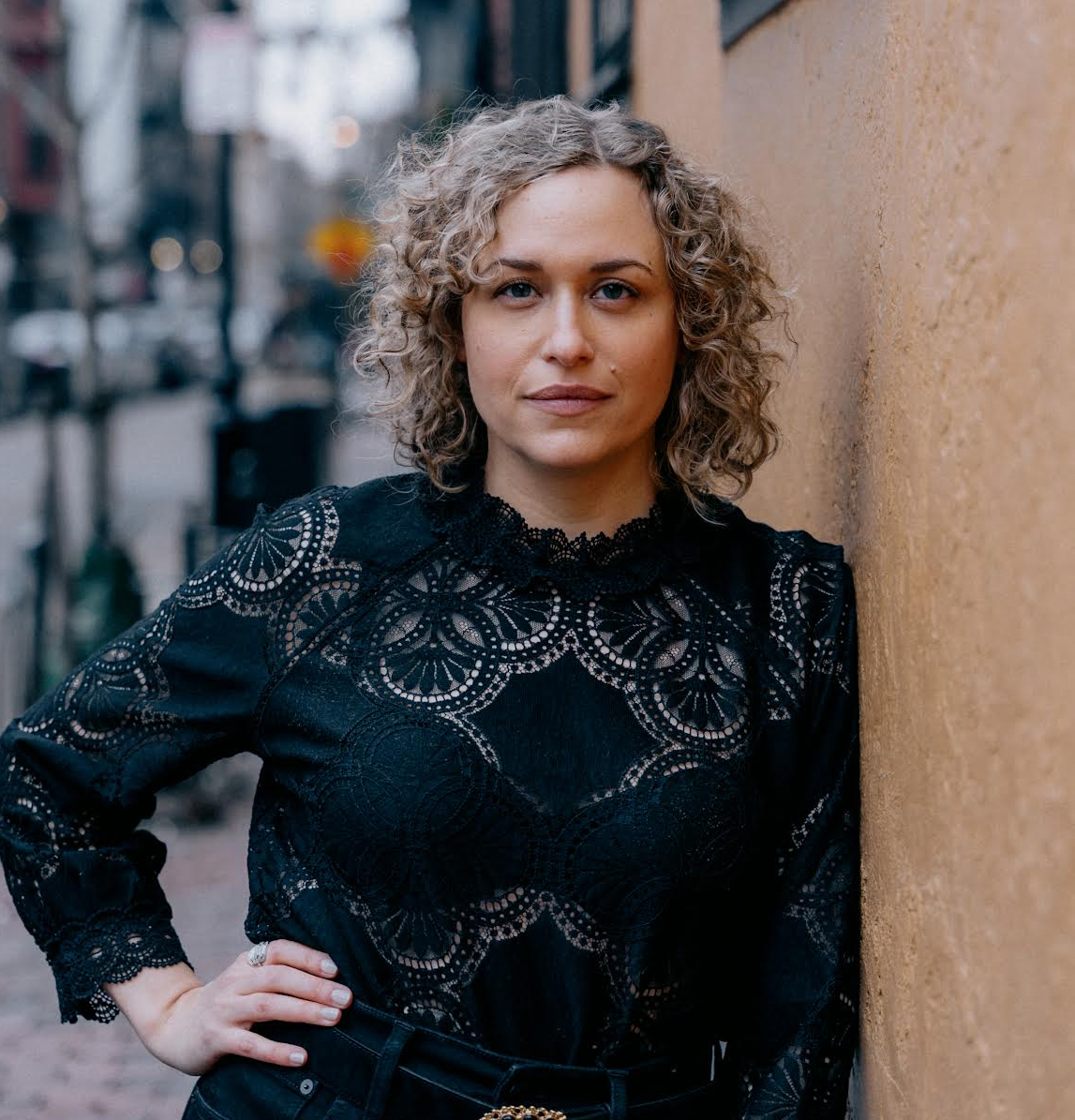How Can the Night King Die on 'Game of Thrones'?
The premiere might have dropped a big hint.


Spoiler alert for Game of Thrones season eight. We still have five episodes left of the last season of Game of Thrones, and the dead are coming fast. The creators aren't giving anything away, but this may mean a long, extended fight with the Night King and his army of wights (undead zombies) and fellow White Walkers (creepy white-skinned monsters that used to be human). It's going to be a hellish road to get rid of them—if at all—but there's a fan theory out there that indicates we might have caught a glimpse at how the living characters will ultimate prevail.
All right, so first a little context. The pivotal moment we're talking about from the premiere is right as Tormund Giantsbane, Dolorous Edd, and Beric Dondarrion (flaming sword FTW!) come across "the Umber boy" we saw earlier in the episode asking for supplies to marshal his men. The poor little one is dead, mounted up on the wall against a creepy spiral pattern of body parts—way to go with the extremely eerie-beautiful visuals, White Walkers—and then opens his pale blue eyes, shrieks like a harpy, and is swiftly set on fire.

(shrieks incoherently for a few seconds) Ok, got it. So why is that important?
According to Redditor zyuko22—fun fact: Reddit is the source of amazing GoT fan theories and discussion—we last saw that same spiral pattern, made out of a spiritually powerful Weirwood tree and stones, when the very ancient creatures Children of the Forest created the first White Walker. There's another common Children of the Forest/White Walker symbol, a circle with a line through it, that's come to represent (theoretically) God's Eye, a lake in Westeros that's filled with Weirwood trees.
The theory is that this spiral pattern from the premiere represents the "Grand Weirwood Tree, a sort of 'heart' of all the Weirwoods in Westeros," and the source of the Night King's power. When Beric set that spiral on fire, it could be a hint that the main characters will have to burn the Grand Weirwood Tree in God's Eye in order to destroy the true source of the Night King's power. I know it's complex, but the point is—perhaps we learned about the origin of the White Walkers for an important reason, because the old, evil magic is going to need a powerful, old remedy.
I like this theory for a few reasons. 1) dragons! Fire-breathing dragons! They have all the fire they need! 2) this is a lot more positive than the theory that the spiral means the Night King is a Targaryen, 3) the Children of the Forest seem like they're bound up in the lore of the White Walkers, so it makes that old magic is involved, and 4) the Night King is going to be bloody impossible to kill so it makes sense that something profoundly powerful needs to happen in order to kill him. You know a Valyrian steel sword might not cut it, terrible pun intended.
Reasons I don't like this theory: If burning the Weirwood gets rid of magic, does it get rid of ALL magic? What happens to the dragons and other magical creatures? Does Jon go back to being dead if magic is keeping him alive?
Get exclusive access to fashion and beauty trends, hot-off-the-press celebrity news, and more.
Also, now the question becomes: If this is true, how do the characters figure all this out?
A post shared by gameofthrones (@gameofthrones)
A photo posted by on
Basically, TL;DR: The source of the Night King and White Walkers' power could be in the Weirwood trees—and burning them may kill them for good.
For more stories like this, including celebrity news, beauty and fashion advice, savvy political commentary, and fascinating features, sign up for the Marie Claire newsletter.
RELATED STORIES



Katherine’s a contributing syndications editor at Marie Claire who covers fashion, culture, and lifestyle. In her role, she writes stories that are syndicated by MSN and other outlets. She’s been a full-time freelancer for over a decade and has had roles with Cosmopolitan (where she covered lifestyle, culture, and fashion SEO content) and Bustle (where she was their movies and culture writer). She has bylines in New York Times, Parents, InStyle, Refinery29, and elsewhere. Her work has also been syndicated by ELLE, Harper’s Bazaar, Seventeen, Good Housekeeping, and Women’s Health, among others. In addition to her stories reaching millions of readers, content she's written and edited has qualified for a Bell Ringer Award and received a Communicator Award.
Katherine has a BA in English and art history from the University of Notre Dame and an MA in art business from the Sotheby's Institute of Art (with a focus on marketing/communications). She covers a wide breadth of topics: she's written about how to find the very best petite jeans, how sustainable travel has found its footing on Instagram, and what it's like to be a professional advice-giver in the modern world. Her personal essays have run the gamut from learning to dress as a queer woman to navigating food allergies as a mom. She also has deep knowledge of SEO/EATT, affiliate revenue, commerce, and social media; she regularly edits the work of other writers. She speaks at writing-related events and podcasts about freelancing and journalism, mentors students and other new writers, and consults on coursework. Currently, Katherine lives in Boston with her husband and two kids, and you can follow her on Instagram. If you're wondering about her last name, it’s “I go to dinner,” not “Her huge ego,” but she responds to both.